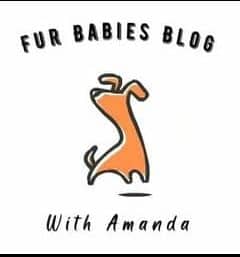Best Dog Food for Allergies
I've been there, watching my furry friend suffer from allergies – the constant scratching, irritated skin, and digestive issues. It's heartbreaking, and I know you're going through the same thing. But here's the good news: finding the best dog food for allergies can be a total game-changer, bringing relief and happiness back to your pup's life.
In a hurry? Find my recommended dog foods here….
In this article, I'll guide you through the process of navigating dog food allergies, so you can find the perfect meal for your beloved companion.

Key Takeaways:
- Identify the culprits: Common allergens in dog food include beef, chicken, dairy, and wheat, which can trigger symptoms like itchy skin, digestive issues, and ear infections.
- Choose the right food: Opt for dog foods with limited ingredients, novel proteins like duck or venison, hydrolyzed protein, or grain-free formulas to minimize the risk of allergic reactions.
- Gradual transition is key: When switching to new food, mix it with your dog's current food in small amounts and gradually increase the proportion over several days to avoid digestive upset.
An elimination diet trial takes approximately two to three months to complete. This time is necessary for the old proteins to leave the dog’s system. Additionally, the dog must be on the diet long enough to see a difference from the previous food.
Understanding Food Allergies in Dogs
A food allergy occurs when your dog's immune system overreacts to a particular ingredient in their diet, triggering a range of symptoms from itchy skin and hot spots to vomiting, diarrhea, and even ear infections. As a pet owner, it's necessary to recognize the signs and take action to alleviate your dog's discomfort.
Common Culprits: Beef, Chicken, Dairy, and Wheat
Many allergies from dog food are caused by eating beef, chicken, dairy, and wheat. These ingredients can cause a significant reaction in your dog's immune system, leading to uncomfortable symptoms.
Distinguishing Between Food Allergies and Intolerances
Understanding the difference between food allergies and intolerances is crucial in identifying the root cause of your dog's issues. Food allergies are about the immune system, while intolerances are digestive issues.
Dogs can develop sensitivities to certain foods, which can manifest in various ways. By distinguishing between allergies and intolerances, you can provide targeted relief and improve your dog's overall health. Recall, consulting your veterinarian is key in determining the exact cause of your dog's symptoms.
Choosing the Right Food
Any dog owner who has witnessed their pet suffer from allergies knows how distressing it can be. But finding the right dog food can be a game-changer, providing much-needed relief and paving the way for a happier, healthier life.

Limited Ingredient Diets: Minimizing Allergen Exposure
Ingredient quality is key when it comes to alleviating allergies. Look for foods with limited ingredients, as this minimizes the potential for encountering allergens. Fewer ingredients mean fewer opportunities for your dog's immune system to overreact.
Novel Proteins and Hydrolyzed Protein: Safe Options
Safe and effective alternatives to common allergens like beef and chicken are novel proteins like duck, venison, or rabbit. Hydrolyzed protein, where proteins are broken down into smaller pieces, is another allergy-friendly choice.
Another benefit of novel proteins and hydrolyzed protein is that they're less likely to trigger an immune response in your dog. This means you can say goodbye to those itchy skin and digestive issues, and hello to a happier, healthier pup. By choosing these safe options, you can reduce the risk of allergic reactions and give your dog the best chance at a comfortable, happy life.
Here is the text for the chapter ‘Grain-Free Formulas: A Solution for Sensitive Pups':
Grain-Free Formulas: A Solution for Sensitive Pups
Once again, I want to emphasize the importance of considering grain-free formulas for dogs with allergies. Grains like wheat, barley, and rice are common allergens that can exacerbate skin issues and digestive problems. By opting for grain-free dog food, you're reducing the likelihood of exposing your pup to potential irritants.
Identifying Grain-Free Options
One way to identify grain-free options is to look for certifications like the “Grain-Free” label or phrases like “no grains” or “grain-free formula” on the packaging. Be cautious, though, as some manufacturers may use alternative names for grains, such as “ancient grains” or “whole grains.” Always double-check the ingredient list to ensure it meets your standards.
Reading Labels: Prioritizing Transparency and Quality
For me, reading labels is a vital part of finding the best dog food for allergies. You want to prioritize transparency and quality, ensuring that the manufacturer is open about their ingredients and sourcing. Look for brands that provide clear, concise information about their recipes and avoid those with vague or misleading labeling.
Quality is key when it comes to grain-free dog food. Be wary of manufacturers that use low-quality ingredients or fillers to replace grains. Instead, opt for brands that use whole, named ingredients and avoid generic terms like “meat” or “by-products.” By choosing a high-quality, grain-free formula, you're giving your pup the best chance at a happy, healthy life.
Transitioning to New Food: A Gradual Approach
Your dog's digestive system is a delicate balance, and sudden changes can lead to upset stomachs, diarrhea, or even vomiting. To avoid these issues, it's crucial to introduce new food gradually.
Mixing Old and New Food: Avoiding Digestive Upset
Gradually phasing in the new food is key. Start with a small amount of the new food with your dog's usual food, increasing the ratio or amount over several days. This allows your dog's system to adjust to the new ingredients and reduces the risk of digestive upset.
Overcoming Common Challenges
Despite the many obstacles that come with finding the best dog food for allergies, I've learned that it's crucial to stay patient, persistent, and informed. With the right mindset and resources, you can overcome the hurdles and find a food that brings relief and happiness to your furry friend.
Managing Symptoms: Itchy Skin, Hot Spots, and More
With a deeper understanding of your dog's specific needs and allergies, you can start to tackle those pesky symptoms head-on. Whether it's soothing itchy skin, calming hot spots, or alleviating digestive issues, the right food can make all the difference.
Seeking Support: Online Resources and Pet Communities
Spots of wisdom can be found in the most unexpected places, and for me, that's been online forums and pet communities. Connecting with fellow pet owners who've walked a similar path has been a game-changer, offering valuable insights, advice, and reassurance.
Online resources have become my go-to haven for guidance and support. From pet blogs to social media groups, there's a wealth of information and camaraderie waiting to be tapped.
I've found solace in knowing that I'm not alone in this journey, and that together, we can navigate the complexities of dog food allergies and find the best solutions for our beloved pets.
Final Words
Finding the best dog food for allergies is a crucial step towards giving your furry friend the gift of comfort and happiness. By understanding the common allergens, choosing the right food, and transitioning gradually, you can alleviate your dog's suffering and pave the way for a healthier, itch-free life.
Don't be afraid to seek help from your veterinarian or online resources, and remember, your part of a community that cares deeply about the well-being of their pets. With patience, love, and the right guidance, you can unlock a life of joy and vitality for your beloved dog.
People also ask….
Q: What are the common signs of dog food allergies?
A: If your dog is suffering from food allergies, you may notice symptoms like incessant scratching, irritated skin, hot spots, vomiting, diarrhea, and even ear infections. These signs can vary in severity, but it's crucial to recognize them early on to provide your dog with the necessary relief.
Q: How do I know if my dog has a food allergy or intolerance?
A: You need to know the difference between food allergies and intolerances. Food allergies are to do with the immune system, while intolerances are digestive issues. Consult with your veterinarian to determine the exact cause through elimination diets and other diagnostic tools. They'll help you identify the culprits and develop a plan to address your dog's specific needs.
Q: What makes the best dog food for allergies, and where do I start?
A: The best dog food for allergies typically features limited ingredients, novel proteins like duck or venison, hydrolyzed protein, and grain-free formulas. When selecting a new food, read labels carefully to identify potential allergens and choose reputable brands that prioritize transparency and quality.




